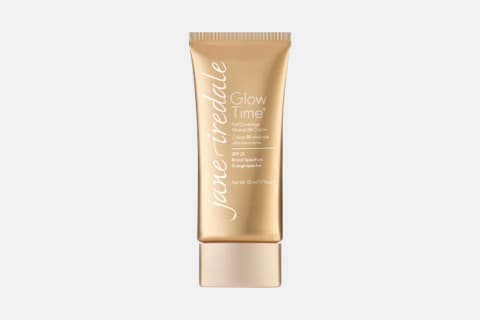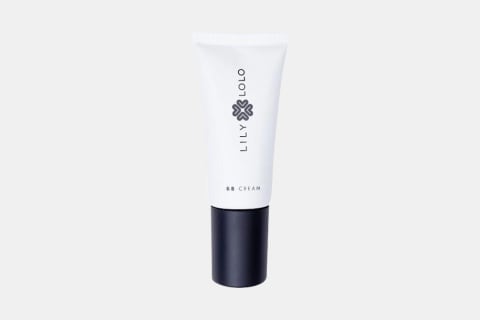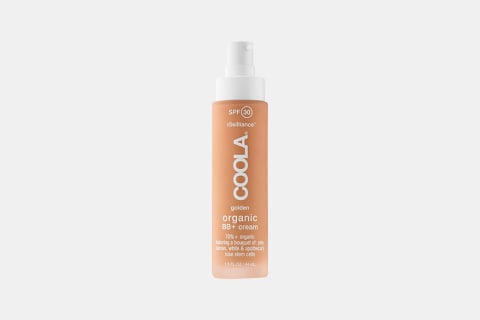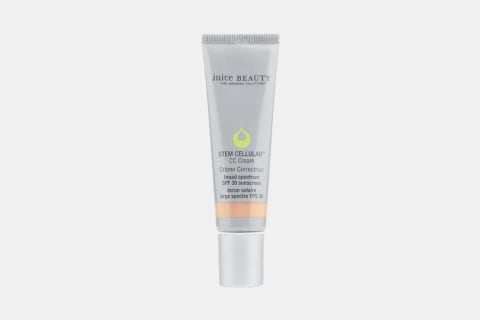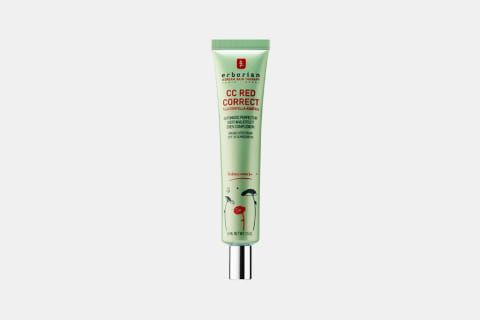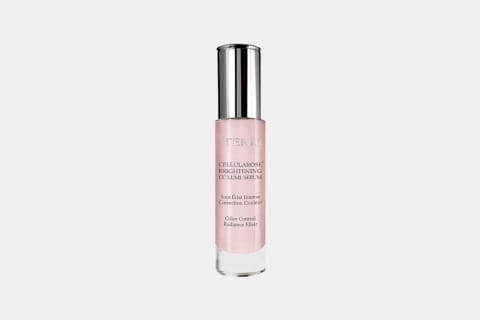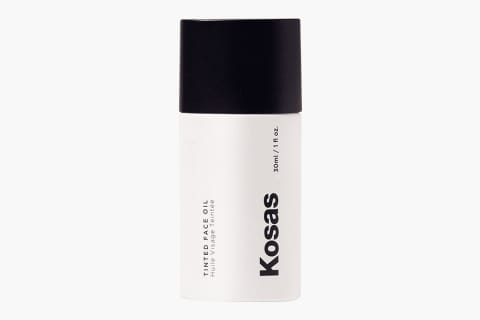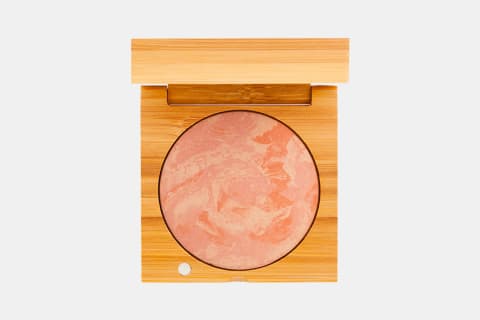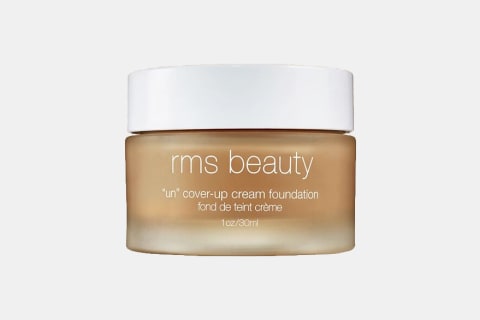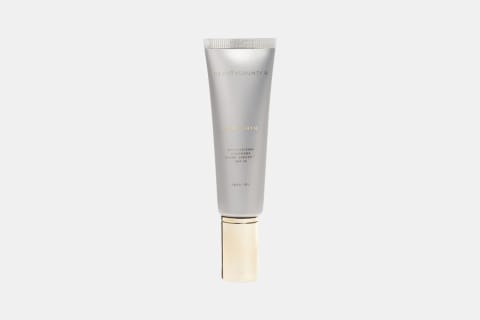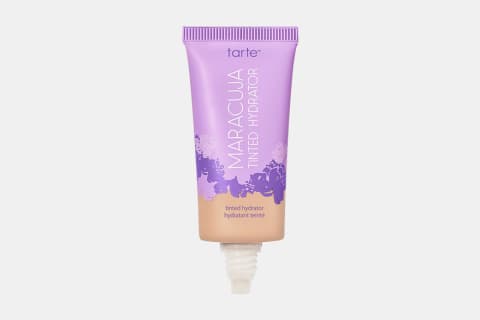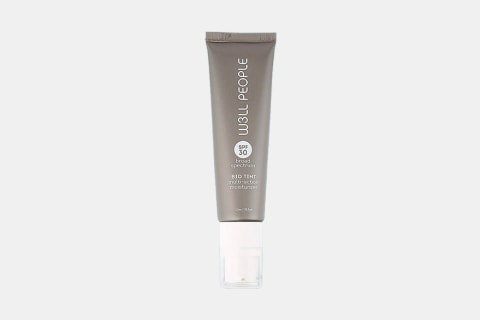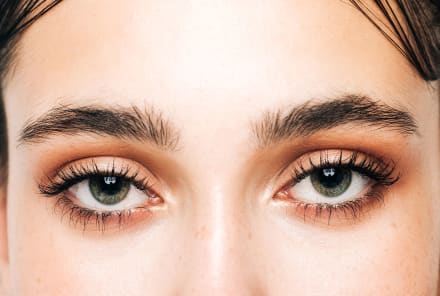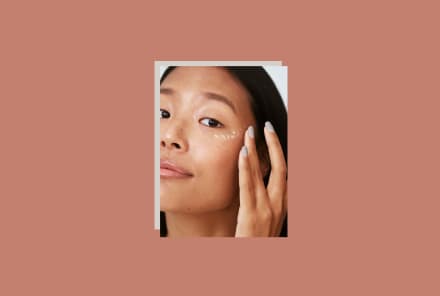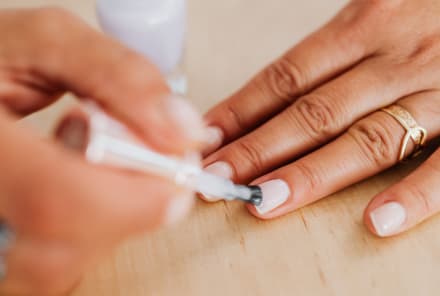Advertisement
BB Cream Versus CC Cream: Let's Get To The Bottom Of The Coverage Debate

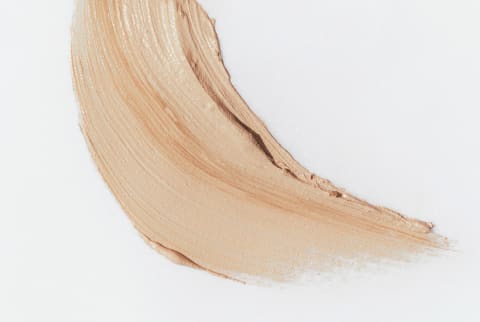
In the quest for dewy skin, there's no shortage of buttery, skin-care-meets-makeup formulas. Enter, your BB and CC creams, K-beauty mainstays meant to give your skin that effortless, woke-up-with-no-blemishes glow. While both can cover up acne and discoloration, there are slight (emphasis on slight) nuances to the two that mind a little beauty lesson. That said, let's dive into the makeup alphabet, starting with BB versus CC creams, plus which one you should use.
What is a BB cream?
To put it simply, BB stands for "blemish balm" or "beauty balm," and these creams tend to have some skin care properties (think SPF, hyaluronic acid, or antioxidants).
"They typically contain skin care ingredients to keep the skin's natural glow," explains Joanna Vargas, celebrity facialist and founder of Joanna Vargas Salons and Skin Care. So if you're looking for a lightweight base that straddles both skin care and makeup, BB cream is your go-to.
For even more of a skin care boost, makeup artist Alexandra Compton, product development manager at clean beauty retailer Credo, suggests mixing your BB cream with your moisturizer or face oil. If you're hoping to resemble a dewdrop (or a crystal pane of glass, perhaps?), consider this makeup artist hack: "It will change the finish from dewy to dewiest," she says.
Can you use BB cream instead of foundation?
Short answer: You can totally swap your foundation for a BB cream, if you so choose. If you're used to a full-coverage look, though, just know you won't get the same payoff from BB cream as you would a highly pigmented foundation.
What is a CC cream?
CC creams also provide coverage, but their emphasis is more on evening out skin tone. CC stands for "color correcting," and these creams typically have a more whipped, creamy consistency than your average BB.
While brands may incorporate SPF into the formula (see our recs, below), that's usually where they draw the line in terms of skin care benefits. You see, CC creams don't have as many hydrating ingredients as a BB cream: "They might have a few luminizing properties, but they're mostly about the mix of pigments to even out skin tone," says makeup artist Jenny Patinkin. So if you're noticing any hyperpigmentation or redness, a CC cream may be just what you need.
When should you use CC cream over BB cream?
Since CC stands for "color correcting," reach for the CC cream if you're looking to neutralize any discoloration, and stick to a BB cream for overall sheer coverage. "You can focus the creams on areas of concern, like darkness under the eyes or redness around the nose and cheeks," Compton explains. "Or you can easily apply all over like you would a face cream." The ball is in your court, here.
Bb cream vs. CC cream vs. foundation.
You're probably thinking, If BB and CC creams provide coverage, aren't they essentially the same as foundation? BB and CC creams are, at their core, types of foundations. But think of "foundation" as a big umbrella term with varying amounts of coverage—that's where your BB and CC creams come into play.
You can even layer your BB over CC creams if you're only looking to color correct certain areas, says Compton, or use them as primers before laying on concealer: "If you want a very natural skin finish but are struggling with areas of discoloration from sun damage or scarring, apply a BB or CC cream on the entire face and focus a concealer on areas of concern."
That's not to say a proper foundation doesn't have its advantages; foundations can have a spectrum of coverage options themselves (from extra-light to heavy), as well as a wide range of shades. And despite the heavier coverage, there are a multitude of ways to apply them without looking too caky.
Try these products:
Bb cream vs. CC cream vs. tinted moisturizer.
A tinted moisturizer is usually the lightest of the bunch, providing only a wash of coverage. (Although, you can find fairly pigmented options.) At its core it's, well, a moisturizer—sometimes incorporating SPF with just a touch of pigment to give you an incredibly natural-looking glow.
Think of BB and CC creams as just a step or two heavier, says Patinkin; the difference isn't much, admittedly, but sometimes that extra step is just what you need for pesky blemishes or under-eye shadows to remain hidden.
What is DD cream?
While browsing all your coverage options, you may have heard the term "DD cream" thrown around once or twice. DD stands for “dynamic do-all,” “daily defense,” or “double duty." Essentially: DD creams do, well, everything. They're marketed toward those looking for makeup with healthy aging benefits, like protection from environmental aggressors and oxidative stress (hence, where the term "daily defense" comes from).
How does it compare to BB cream?
Admittedly, it's a bit of a marketing game—they're essentially the same. If you want to get technical, you can think of DD creams as BB creams with an extra dose of antioxidants and SPF (like this option, from DERMAdoctor).
So which option should you use?
Ultimately, it depends on what kind of coverage you're looking for. Here's the summary:
- Use a BB cream if: You want an allover glow with added skin care benefits.
- Use a CC cream if: You have discoloration you'd like to target.
- Use tinted moisturizer if: You're looking for a light wash of coverage, use tinted moisturizer.
- Use full-coverage foundation if: You're looking for highly-pigmented makeup.
The takeaway.
If there were a hierarchy in terms of coverage, it would go as follows: tinted moisturizer, BB cream, CC cream, then finally foundation. They also have slightly skewed benefits—BB creams contain treatment-oriented ingredients, while CC creams feature on color correcting pigments (and DD creams load on the antioxidants).
Whether you're partial to the bounce-and-swipe of a beauty blender or using your (clean!) fingers, you can rely on BB and CC creams to elevate your dewy look, all while letting your natural skin texture live on.
Watch Next
Enjoy some of our favorite clips from classes
Enjoy some of our favorite clips from classes
What Is Meditation?
Mindfulness/Spirituality | Light Watkins
Box Breathing
Mindfulness/Spirituality | Gwen Dittmar
What Breathwork Can Address
Mindfulness/Spirituality | Gwen Dittmar
The 8 Limbs of Yoga - What is Asana?
Yoga | Caley Alyssa
Two Standing Postures to Open Up Tight Hips
Yoga | Caley Alyssa
How Plants Can Optimize Athletic Performance
Nutrition | Rich Roll
What to Eat Before a Workout
Nutrition | Rich Roll
How Ayurveda Helps Us Navigate Modern Life
Nutrition | Sahara Rose
Messages About Love & Relationships
Love & Relationships | Esther Perel
Love Languages
Love & Relationships | Esther Perel
